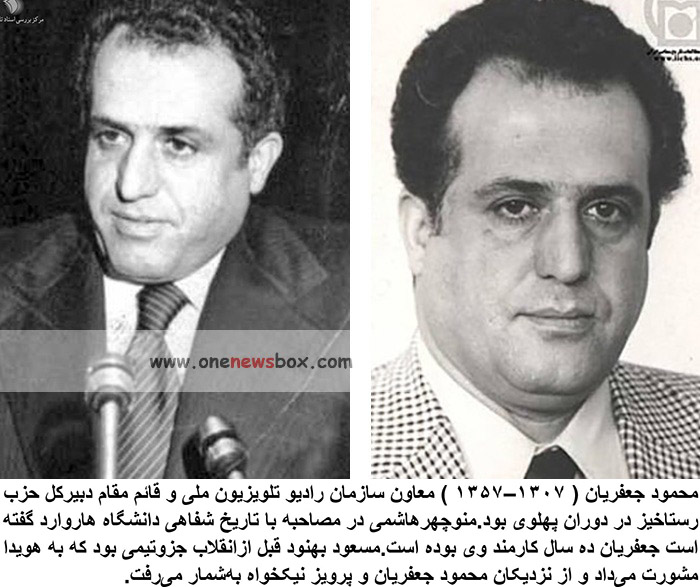Mahmoud Jafarian: A Life in Power and a Tragic Fall in Revolutionary Iran
Mahmoud Jafarian, born in 1928 in Tehran, Iran, emerged as one of the prominent figures during the late Pahlavi era. His political and administrative career intertwined with the most sensitive state institutions of his time, including the National Iranian Radio and Television Organization and the Rastakhiz Party, which was the only legal political party during the final years of Mohammad Reza Shah Pahlavi’s rule. Jafarian’s trajectory, which rose within the tightly controlled political and media systems of pre-revolutionary Iran, came to a violent and abrupt end on 12 March 1978 when he was executed by the Revolutionary Court in the turbulent days following the Islamic Revolution.
This text aims to trace Jafarian’s life, his involvement in Iran’s political landscape, his alleged ties to SAVAK, and the complex post-revolutionary narratives that question the legitimacy of his trial and execution.
Early Life and Rise to Power
Little is publicly documented about Jafarian’s early years or his path to prominence. Born in Tehran in 1928, he came of age during the reign of Reza Shah and began his professional and political career as Iran was transforming under the modernization policies of Mohammad Reza Shah. Jafarian’s ascent to positions of significant authority suggests a man of strategic alliances, political flexibility, and perhaps ideological conformity with the Shah’s centralization of power.
In time, Jafarian became the Deputy Head of the National Iranian Radio and Television Organization (NIRT), one of the most critical institutions in Iran’s propaganda and information control apparatus. This institution held a monopoly on broadcasting and thus had immense influence on shaping public opinion, culture, and national identity. His position placed him in direct control of what was broadcasted to millions of Iranians and allowed him to shape or suppress political discourse.

